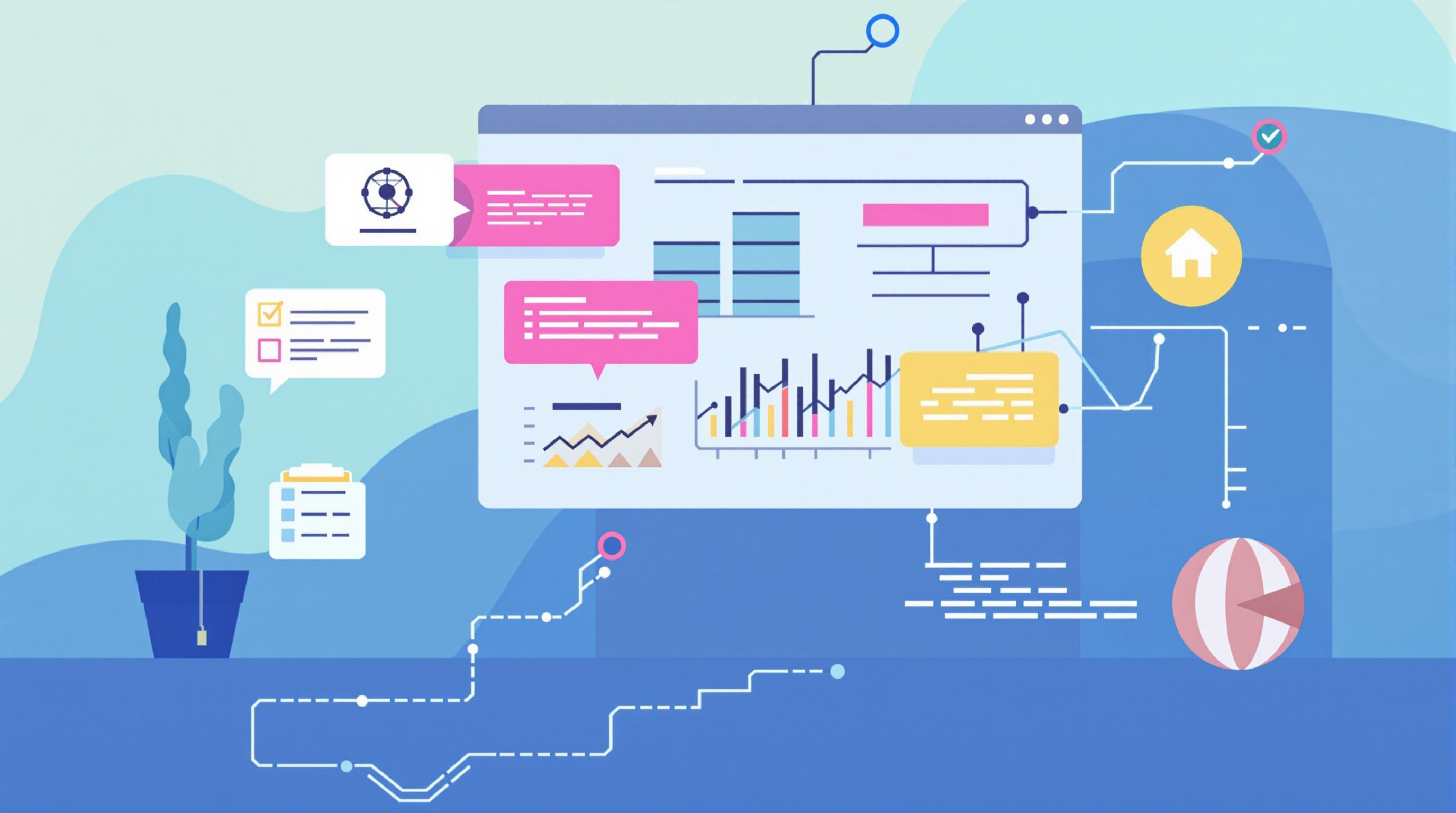Related Articles
- Exploring the Role of Emotional AI in Resolving Conflicts Within Customer Support Interactions
- Top 6 Breakthrough Pricing Engines Launched Since 2019 That Redefine Value Perception and Buyer Behavior
- How HR Software Is Quietly Shaping Workplace Culture Beyond Metrics and Performance Tracking
- The Surprising Influence of Workplace Architecture on Team Dynamics and Project Success in Business Ventures
- 7 Lesser-Known Marketing Automation Tools Released Since 2019 That Outsmart the Giants
- Top 6 CRM Platforms Released Since 2019 That Are Redefining Automation and User Experience in 2024
7 Lesser-Known Marketing Automation Tools Released Since 2019 That Outsmart the Giants
7 Lesser-Known Marketing Automation Tools Released Since 2019 That Outsmart the Giants
Since 2019, a wave of marketing automation tools has emerged, offering fresh alternatives that challenge the dominance of industry giants. This article explores seven of these lesser-known platforms, unraveling their unique features, benefits, and why marketers should consider them.
Conversational and Insightful: Autopilot’s Journey to Simplify Automation
Imagine a tool that lets you visually craft your marketing journeys without the chaos of code. That’s exactly what Autopilot, launched before but significantly ramped up features post-2019, offers. Its user-friendly interface and focus on visual customer journeys make it a favorite for marketers seeking simplicity without sacrificing power.
Autopilot integrates seamlessly with a myriad of platforms—think Salesforce, Slack, and even Facebook Ads—empowering teams to customize automated campaigns deftly. According to a 2021 customer survey by Autopilot, businesses saw an average 30% increase in engagement within the first three months, underscoring the tool’s efficacy.
Anecdote: How a Boutique Firm Outpaced Competitors Using Autopilot
Jenny, marketing director at a boutique sustainable fashion brand in Portland, found her team overwhelmed juggling emails, social media, and lead nurturing. Switching to Autopilot allowed her to set up sophisticated workflows that automatically trigger personalized content based on customer behavior. Result? A 40% rise in newsletter click-through rates and a doubling of returning customers in just six months.
Unconventional Brilliance: Iterable’s Cross-Channel Mastery
When personalization meets scale, magic happens. Iterable appeared on the scene with a robust cross-channel marketing platform that has captured the attention of brands wanting a tailored approach at scale.
The platform supports email, SMS, in-app notifications, and push notifications, all coordinated from a single hub. By 2022, Iterable was reporting a 25% boost in customer retention for companies leveraging their real-time segmentation and automation features.
Furthermore, Iterable's AI-driven recommendations help marketers predict what message will resonate most with each user — a nod to the platform's forward-thinking approach to automation.
Humorous Tidbit
Think of Iterable as the multi-tasking octopus of marketing automation—tentacles everywhere, all doing clever things simultaneously.
Storytelling with AI: The Rise of Customer.io
Have you ever wanted to whisper the perfect message into each customer’s ear exactly when they needed it? Customer.io surfaces as a champ for those seeking to create highly personalized customer journeys with razor-sharp timing.
Since 2019, Customer.io has evolved its AI-powered messaging to make automation smarter and more intuitive. Its users praise its ability to track intricate user behaviors and trigger complex workflows that feel “human” due to their context-sensitive nature.
One SaaS company credited Customer.io for reducing churn by 18% within their first year of use. The tool’s flexible API integration also makes it amenable for tech-savvy teams who want to blend custom code with out-of-the-box solutions.
Casual and Straightforward: ActiveCampaign's Cozy Combo of CRM and Automation
I've gotta say, ActiveCampaign sounds like your marketing team's best friend.
Rolling out continuous updates since its founding, the platform branched out past basic automation into integrated CRM. That means marketers can nurture leads, automate emails, and handle customer data without juggling multiple tools.
The 2023 State of Marketing Automation report shows a 33% growth in ActiveCampaign adoption among SMEs seeking affordability combined with power.
Case Study Spotlight
Consider an independent yoga studio that leveraged ActiveCampaign’s automation to send personalized class reminders, upsell workshops, and gather feedback. Not only did class attendance swell by 27%, but client satisfaction surveys skyrocketed.
Formal Outlook: MoEngage—The Customer Engagement Powerhouse Emerging from Asia
Headquartered in Bangalore, India, MoEngage arose as a formidable competitor in global marketing automation.
Providing robust AI-powered customer analytics and automation capabilities, MoEngage caters particularly well to mobile-centric businesses. Since its strategic enhancements in 2019, it has grown exponentially, with Gartner recognizing it as a "Cool Vendor" in 2021.
MoEngage facilitates hyper-personalized push notifications, in-app messaging, and email marketing with precision targeting, leading to reported uplift of 22% in mobile user retention for its clients.
Statistic
Mobile marketers using MoEngage witnessed a 15% increase in conversions during the pandemic, illustrating its adaptability in turbulent market conditions.
Humorous but Informative: Sendinblue's Journey from Email to Marketing Multitasking
Who says small tools can’t wear big hats? Sendinblue started as an email tool but reinvented itself as a full-fledged marketing automation platform without losing its humble roots.
Launched before 2019 but continuously innovating, Sendinblue now offers SMS marketing, chat, CRM functionalities, and marketing automation all wrapped in an easy interface geared toward small and medium enterprises.
E-commerce stores on Sendinblue have reported conversion rate increases of up to 20% after implementing its automated campaigns.
Conversational Interaction
“It’s like the Swiss Army knife of marketing,” says Sol, a digital marketer from Spain. “Small businesses get big-league tools without the headache or the price tag.”
Persuasive Argument: Why You Should Consider Omnisend if You’re in E-Commerce
E-commerce is a jungle, and survival depends on quick, smart moves. Omnisend, founded in 2014 but accelerating feature releases after 2019, perfects automation that’s made for e-commerce businesses.
Key strengths include built-in segmentation for cart abandonment, product recommendations, and multi-channel campaigns across email, SMS, push, and more. Data from Omnisend users show an average 28% increase in sales with their automation strategies.
If you’re aiming to cultivate loyal customers without manual hassle, Omnisend is the weapon of choice.
Final Thought
The marketing automation landscape is evolving fast. While the giants don’t disappear, these seven tools have proven their mettle by offering specialized, innovative, and user-centered solutions that can help marketers outsmart the competition.




